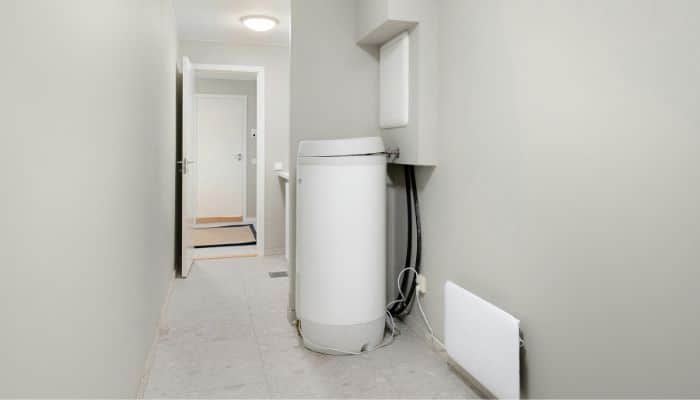Few things are more frustrating than waking up or returning home to no hot water. Water heaters are essential appliances, and when they suddenly stop working, it can disrupt your daily routine. Understanding why this happens, and how to address the problem, is crucial to keeping your home running smoothly. In this blog, we’ll explore common reasons a water heater might fail, how a technician can help, and preventative measures to avoid unexpected breakdowns.
Common Causes of Water Heater Failures
Water heaters can fail for many reasons, from simple maintenance issues to complex mechanical problems. Knowing the signs can save you from sudden cold showers and expensive repairs.
1. Power Supply Issues
Electric water heaters rely on a steady supply of electricity. If your water heater stops working suddenly, one of the first things to check is whether it’s receiving power. This could include:
-
A tripped circuit breaker
-
A blown fuse
-
Loose or faulty wiring
A licensed technician can safely inspect and fix electrical issues to ensure your unit operates correctly.
2. Faulty Thermostat or Heating Elements
The thermostat regulates the water temperature. If it malfunctions, your water heater may not heat water at all. Similarly, electric water heaters use heating elements that can burn out over time. A technician can diagnose which part has failed and replace it to restore your hot water supply.
3. Sediment Buildup
Sediment naturally accumulates at the bottom of water heaters, especially in areas with hard water. This buildup can insulate the heating elements, reducing efficiency and eventually causing the unit to stop heating. Regular maintenance, including flushing the tank, is key to preventing this problem.
Signs Your Water Heater Needs Professional Attention
Recognizing the warning signs can prevent complete failure and expensive repairs.
1. Unusual Noises
Popping, rumbling, or banging sounds often indicate sediment buildup. This can eventually damage the tank if ignored.
2. Water Temperature Fluctuations
If your water suddenly goes cold or heats inconsistently, it may signal a failing thermostat or heating element.
3. Leaks and Corrosion
Visible water around the base of your heater or rusted connections are signs of internal issues. Leaks can damage floors and walls, so immediate attention from a technician is recommended.
Preventative Measures to Avoid Sudden Breakdowns of Your Water Heater
Prevention is always better than repair. Implementing a few simple steps can keep your water heater in top condition.
1. Schedule Regular Maintenance
Annual inspections by a licensed technician can detect small issues before they become major problems. This includes checking the thermostat, heating elements, and overall tank condition.
2. Flush the Tank Periodically
Flushing your water heater removes sediment and improves efficiency. Learning how to drain your water heater is an easy step homeowners can take to prolong the life of the unit.
3. Monitor Water Pressure and Temperature
High water pressure and excessive heat can strain your water heater. Keep the pressure and temperature at recommended levels to avoid unnecessary stress on the system.
4. Upgrade Older Units
If your water heater is over 10–15 years old, it may be time to consider a replacement. Modern models are more energy-efficient and less prone to sudden failures.
When to Call a Technician
While some minor issues can be managed at home, many problems require professional intervention. Contact a qualified technician if you notice:
-
No hot water at all
-
Leaks or corrosion
-
Strange noises from the tank
-
Frequent tripping of circuit breakers
Professional water heating services ensure proper installation, repair, and maintenance, giving peace of mind and reliable hot water year-round.
A sudden water heater failure can be inconvenient and stressful, but understanding the common causes and taking preventative measures can help you avoid emergencies. Regular maintenance, paying attention to warning signs, and calling a professional technician when needed are the best ways to ensure your water heater remains efficient and reliable. For homeowners in areas prone to hard water, periodic flushing and monitoring are essential.
FAQs
Can sediment buildup cause a water heater to stop heating?
Yes. Over time, sediment accumulates in water heaters, especially in hard water areas. This buildup insulates the heating element, reducing efficiency and eventually preventing the water from heating.
Should I repair or replace my water heater if it stops working?
If your water heater is relatively new, repairing issues like a faulty thermostat or heating element may be cost-effective. However, if it’s over 10–15 years old, replacement is often the smarter long-term solution.
How often should I flush or drain my water heater?
Experts recommend draining your water heater at least once a year to remove sediment and extend its lifespan. You can follow a simple guide on how to drain your water heater for proper maintenance.


 855-410-TECH(8324)
855-410-TECH(8324) APPLY FOR FINANCING
APPLY FOR FINANCING